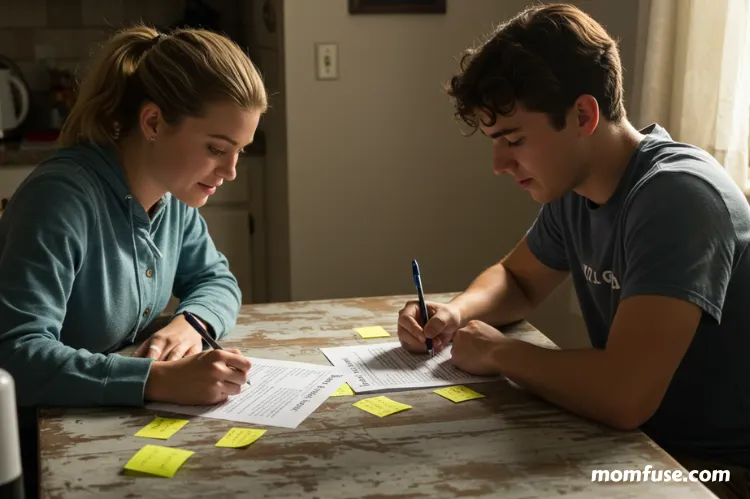If you’re a parent, you’ll know that one of the most nerve-wracking experiences is hearing that your child is living with a bad roommate. It can be frustrating, stressful, and emotionally draining, especially if your child is away at college, starting their first job, or navigating adulthood.
Whether your child’s roommate is inconsiderate, messy, or downright disruptive, it’s crucial to handle the situation with care, guidance, and support. Here’s a guide on what to do when your kid is living with a bad roommate, and how you can help them take steps toward a better living arrangement.
Listen to Your Kid’s Concerns

Before jumping to conclusions or acting on your own, the first thing you should do is listen to your child. Understand what the problems are, how severe they are, and how they’re affecting their day-to-day life. Is their roommate constantly making loud noise late at night? Are there issues with cleanliness? Or perhaps the roommate is inconsiderate of shared spaces and responsibilities?
The key here is to let your child express themselves fully without immediately offering solutions or judgments. Sometimes, just having someone to vent to can help them process the situation. Let them feel heard before jumping into the next steps. This will also give you valuable insight into the nature of the problem, so you can assist them in the best way.
Encourage Open Communication

When it comes to roommate issues, communication is so important. In many cases, bad roommate behavior stems from a lack of understanding, different lifestyles, or unspoken expectations. Encourage your child to have a calm, respectful conversation with their roommate about the issues at hand.
Suggest they approach the situation with empathy and a willingness to listen. They could start by saying something like, “I’ve noticed some things that have been bothering me, and I just wanted to talk about them so we can figure out how to make things work better for both of us. ” It’s essential to approach the conversation with the goal of improving the situation, not accusing or confronting the roommate aggressively.
Sometimes, roommates may not even realize they’re being disruptive, and a straightforward conversation can resolve the issue. However, if the roommate is uncooperative or the behavior continues despite efforts to communicate, it may be time to look into other options.
Set Clear Boundaries and Expectations

In situations where things don’t improve after talking with the roommate, it’s essential to establish clear boundaries and expectations. If your child and their roommate share responsibilities, such as cleaning chores or paying bills, these expectations should be clearly defined and agreed upon. Living with a roommate is a shared experience, and both individuals should contribute equally to maintaining a positive environment.
Help your child set up a roommate agreement if one doesn’t already exist. This can outline mutual responsibilities such as cleaning, quiet hours, visitors, and other shared responsibilities. It’s important that both parties agree to the terms, so everyone knows what is expected of them moving forward.
In some cases, this agreement can help prevent further issues and act as a reminder if conflicts arise. If one party consistently ignores the terms of the agreement, it’s a sign that the relationship may not be sustainable long-term.
Consider Mediation

When conflicts between roommates escalate beyond simple disagreements, it may be time to consider mediation. Many colleges, universities, and housing complexes offer mediation services to help roommates work through their differences in a neutral setting. These mediators are trained to facilitate communication and find common ground between conflicting parties.
If your child is unable to reach a resolution on their own and the relationship with the roommate is becoming untenable, mediation can be an excellent option. It’s also important to note that some landlords or rental agreements offer mediation services as part of their lease agreements, so check if this is an option.
If mediation doesn’t work or the problems persist, it’s time to think about making a change.
Help Them Find a New Roommate or Apartment

In cases where the roommate situation is unbearable or simply not improving, it might be time for your child to move on. Finding a new roommate or even a new apartment may be the best solution for their mental health and well-being.
If your child is hesitant about moving out, remind them that their living situation has a direct impact on their happiness, productivity, and overall quality of life. Living with a bad roommate can lead to stress, anxiety, and an inability to focus on work, school, or socializing. Sometimes, a fresh start in a new environment is the best option.
One way to help them find a new place to live is by using a roommate finder service like spareroom.com to find new rooms for rent in San Francisco, Boston, NYC, or anywhere else in the US. This service allows your child to browse available rooms, get a sense of the rental market in their city, and connect with potential roommates who share similar lifestyles and expectations.
Help Your Kid with the Move

Once your child has found a new living arrangement, whether it’s a new roommate or an entirely new place to live, offer to help with the transition. Moving can be stressful, especially if your child has accumulated a lot of belongings or is navigating their first move without much experience. Assist them with packing, arranging transportation, and getting settled into their new space.
Sometimes, the process of moving can feel overwhelming, but your support can help ease the burden.
Offer Emotional Support

Finally, while logistical solutions are essential, don’t forget the emotional aspect of this situation. Living with a bad roommate can take a toll on your child’s mental health, so offer them emotional support as they navigate the stress of dealing with the situation. Let them know that it’s okay to feel frustrated and that they’re not alone. Sometimes, just knowing that you’re there for them can make all the difference.
Encourage your child to prioritize their mental and emotional well-being, and remind them that they deserve to live in a space where they feel comfortable and at ease.
Conclusion
Living with a bad roommate can be a stressful and disheartening experience for anyone, especially for young adults learning to navigate their independence. However, by staying supportive, encouraging communication, and helping them find a better living situation, you can help your child move past this difficult period.
Read Next: Transform Your Bedroom with Cozy Luxe Quilts Today

